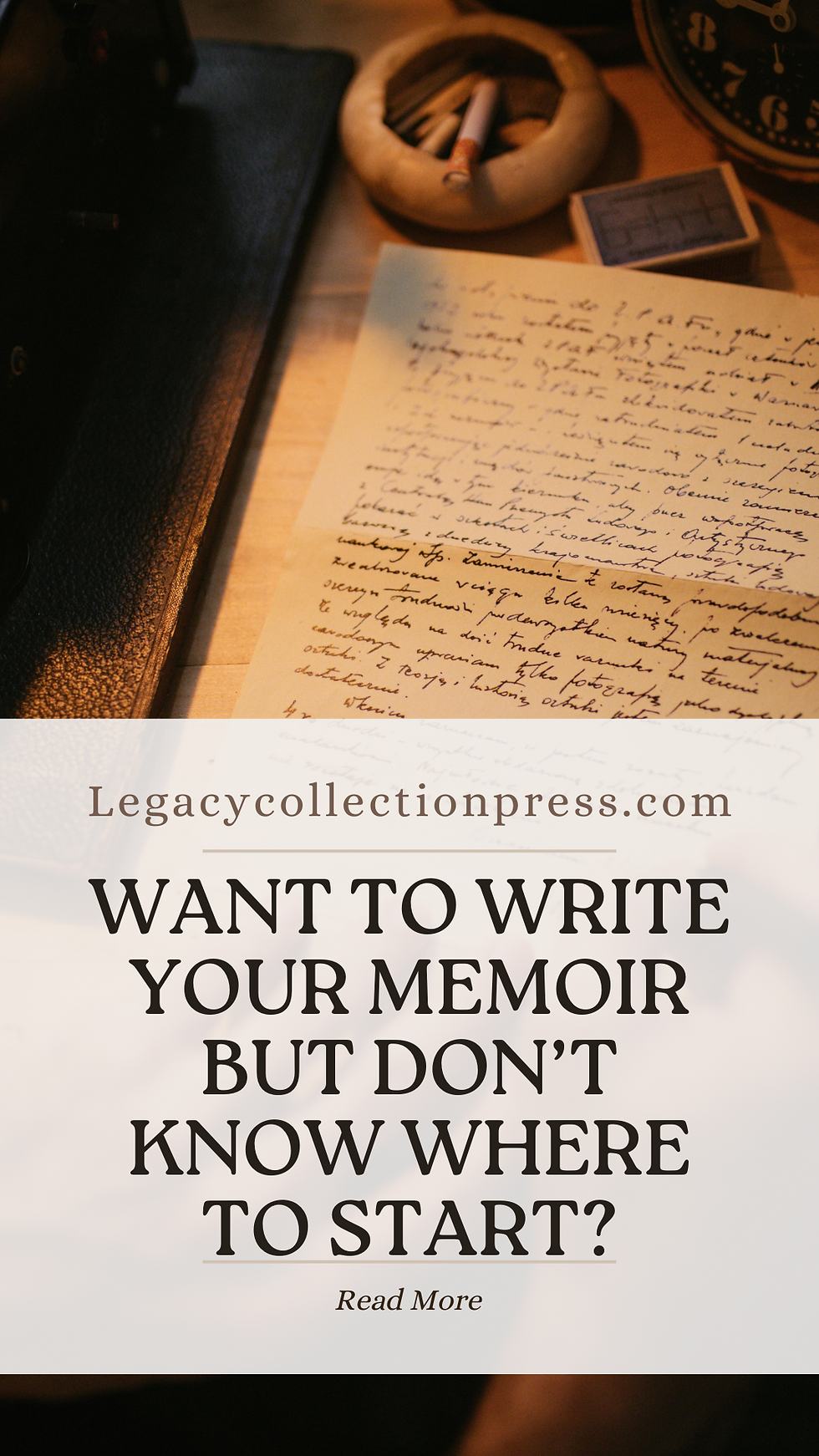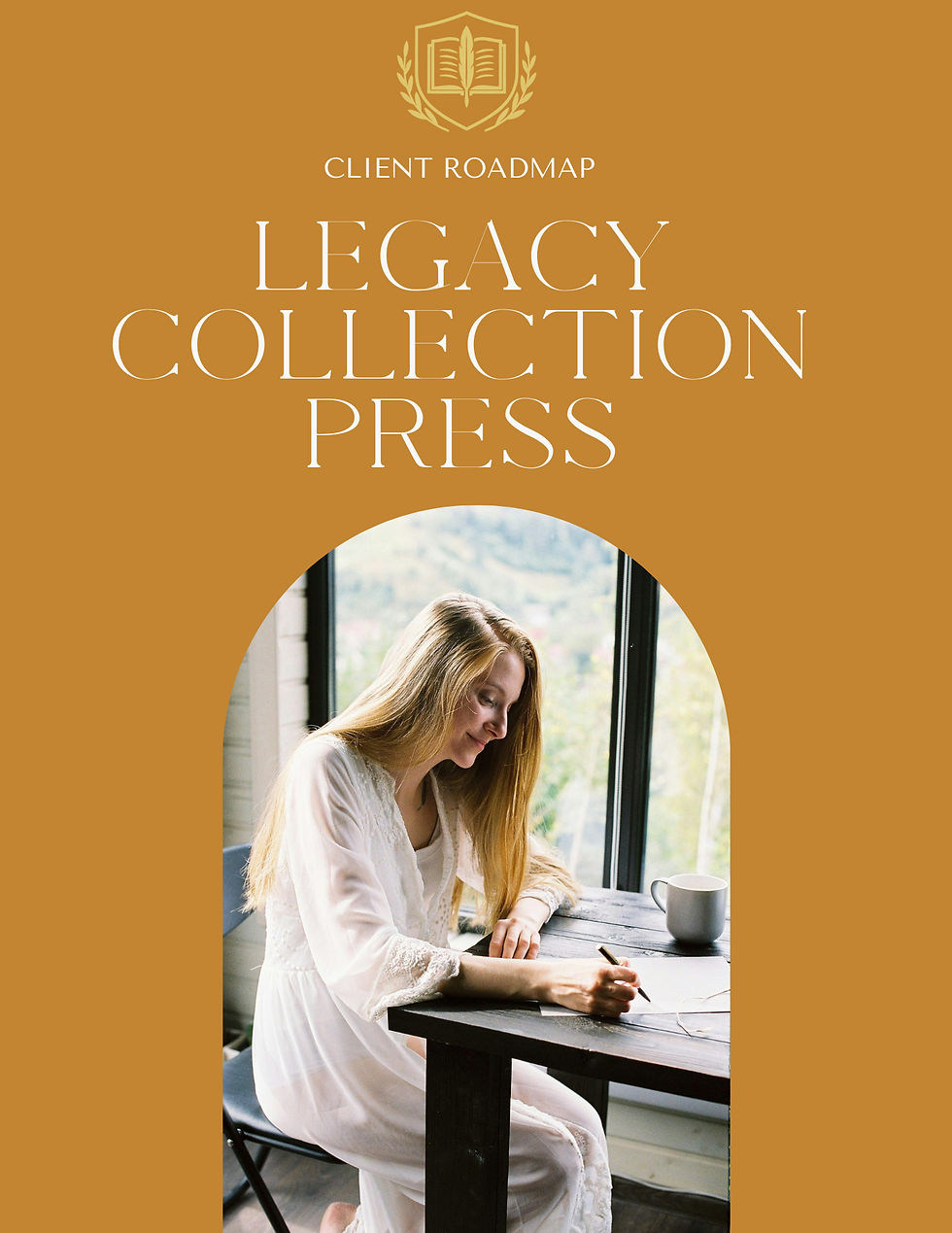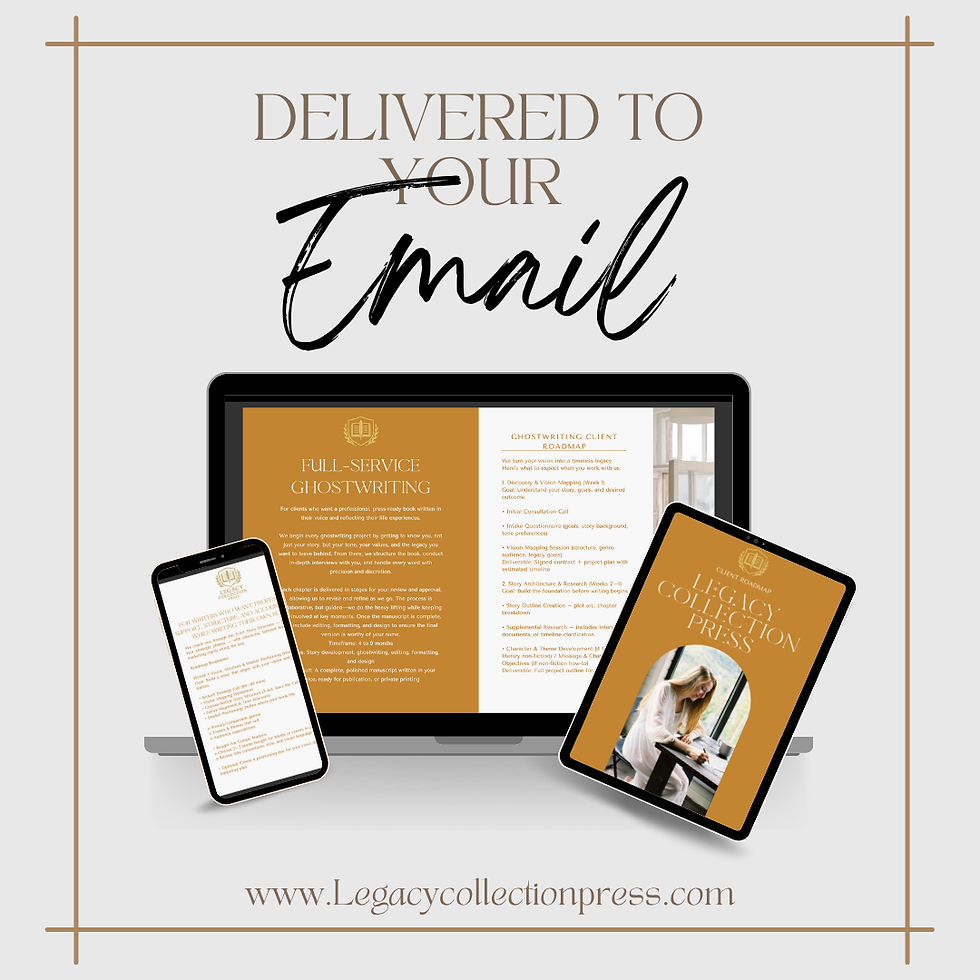Want to Write Your Memoir but Don’t Know Where to Start?
- killianwolf
- Aug 4
- 3 min read

You’ve been through enough to fill a book, maybe even several. You’ve thought about writing it all down. Maybe friends or family have even told you, “You should really write a book.”
But where do you begin?
Start by asking yourself:
What life lessons have I learned? And what message do I want to share with the world?
That will be the soul of your book. I'm sure there are many.
And you don’t have to choose just one.
But once you start jotting down memories, and the lessons that stuck with you, you might start to notice a theme. Maybe even enough for a series.
That’s up to you, but let’s not get ahead of ourselves. There's more to consider.
What Could Writing Your Memoir look like?
Memoir doesn’t have to be your entire life story like an autobiography (type of memoir), and I think a lot of people get these confused and start writing their memoirs beginning with their childhood because they think they have to. A memoir is about special memories, capturing a part of your life that shaped you, challenged you, or changed you.
And the way you tell it remains completely up to you.
Here are just a few forms a memoir can take:
Traditional Narrative Memoir
A life lived and told in chapters. Often chronological, focusing on a particular theme or season: survival, career, loss, growth.
Literary or Nonlinear Memoir
Less “this happened, then that happened,” and more emotional journey. These often center on a recurring theme rather than a timeline, weaving in the memories.
Speculative or Fantastical Memoir
Yes, this is a thing. Some people process grief, trauma, or cultural inheritance through metaphor. Think magical realism or fairytale retellings rooted in truth.
Legacy or Professional Memoir
A blend of life story and leadership wisdom. Often written to share insights, family history, or professional impact with future generations or niche audiences.
If You’re Just Starting Out…
Don’t worry about how it all fits together yet. Start by asking:
What moments do I keep returning to?
Who is this for—me, my children, a larger audience?
What am I afraid of forgetting?
What do I want someone else to learn from this?
Jot down answers in a notebook, or record voice notes. Or talk it out with someone you trust, if that helps you remember the pieces.
What You Like to Read Is Important
If you’re writing a book that reflects your life, it should also reflect your style, your voice, and—yes—your reading taste.
Ask yourself:
What types of books do I love?
Do I enjoy reading memoirs, or do I find them boring?
Do I want this to feel personal… or poetic?
Do I connect more with stories that focus on realism, or stories that are symbolic?
You don’t have to force your story into a format that doesn’t excite you.
If You Don’t Read Memoirs…
That’s okay. You might be better suited to something more literary or genre-blended. You can still write a memoir that feels like a novel, and that's reflective, and rich in worldbuilding.
📖 Think: Cheryl Strayed’s Wild, or Tara Westover’s Educated.They read like stories—but they’re grounded in reality.
If You Love Fantasy, Myth, or Magical Realism…
You can still write a memoir.
Some people process trauma, healing, or cultural legacy best through metaphor and magic. These stories blend truth with imaginative symbolism.
🧙♀️ Think: Carmen Maria Machado’s In the Dream House—a memoir written like a haunted house story.Or The Collected Schizophrenias by Esmé Weijun Wang—blending nonfiction with surrealism and clinical research.
You don’t have to choose between honesty and creativity. The best memoirs often live in the middle.
When You’re Ready for Structure…

That’s where the Legacy Collection Press Client Roadmap comes in.
It’s not a workbook or a template. It’s a complimentary PDF guide that walks you through your options, especially if you’re not sure whether to write it yourself, work with a coach, or hire a professional ghostwriter.
What’s Inside the Roadmap?
The difference between ghostwriting, coaching, and editing
What it’s actually like to work with a writing partner
A breakdown of the process, timeline, and deliverables
Questions to help you decide what kind of memoir fits your story best
It’s short, clear, and written for people who are ready to take that first step.

Who It’s For
This guide is for people who:
Feel called to share their story but aren’t sure how
Want to preserve family history, personal growth, or professional legacy
Have started writing… and stopped
Are curious about working with a ghostwriter or book coach
Just need a little clarity before diving in
Ready to Begin?
You don’t need a draft. You don’t need to have it all figured out.You just need the desire to preserve something meaningful—and a guide to help you do it well.
👉 Download the Complimentary Client Roadmap (It’ll be delivered to your inbox right away.)


Comments